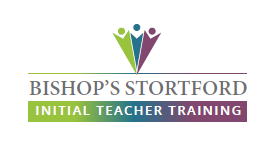Modules 1, 2 and 3: School Based Training
Teaching Practice structure will follow a school experience structure with most weeks spent in one of two schools. Trainees on the Postgraduate Fee-funded scheme will spend longer, in their main placement school (Terms 1 & 3) and the middle term (Term 2) in their second school. Training in school must include substantial teaching in two consecutive age ranges. Early Years Trainees, will experience Early Years and KS1, Primary Trainees will experience (teaching or observing) of years 1 to 6. For Secondary Trainees this will depend on the age range applicable to the subject in which they are training to teach – covering either KS 3 & 4 or KS 4 & 5.
| Primary age 5-11 | Key Stage 1: age 5 – 7 | Key Stage 2: age 7 – 11 |
| Secondary age 11 – 16 | Key Stage 3: age 11 – 14 | Key Stage 4: age 14 – 16 |
| Secondary age 14 – 19 | Key Stage 4: age 14 – 16 | Key Stage 5: age 16 – 19 |
One day a week is blocked out for the ITT training session and Professional Studies seminars. Lessons cannot be timetabled for Trainees on this day.
Timetabling
| Fee-funded Trainees: | Trainees will observe or team teach during their first weeks and may grow into a contact timetable of up to 40% of a full time teacher during the first placement (in a school with 25 lessons per week, this would be 8 lessons).
During the second and third terms teaching classes can rise to up to 65% of a full-time teacher’s timetable. Teacher Mentors will strive to balance experience with preparation time and Trainees causing concern may do less than 65% contact if this supports their progress (in a school with 25 lessons per week, this would be 13 lessons). |
Assessing Modules 1, 2 and 3: The Teacher Mentor’s Termly Assessment
Each term Teacher Mentors will write a report on the Trainee’s progress against the eight Teachers’ Standards and Part Two of the Teachers’ Standards. This report will be approved by the placement school’s Professional Tutor and will be standardised by the Visiting Tutors, based on their observation(s) of the Trainee during that term.
Module 4: Subject Knowledge and Curriculum
Subject specific training will be located in Module 4 of our training courses: “Subject Knowledge and Curriculum”. In primary this will be delivered by the Headteacher or a primary subject specialist. In secondary the subject knowledge module will be delivered by a specialist Subject Mentor for the subject.
Subject knowledge sessions will be held on ITT training days where possible, but it may be necessary to hold sessions on other days or out of school hours if the Subject Mentors are not available during the mid-morning slot on the training day or they are based in another school. Secondary Trainees will have a subject specialist in their specialist subject. Primary Trainees will have subject knowledge sessions with a range of subject specialists to develop their knowledge of the foundation subjects.
The training will consist of 20 hours face to face training with additional directed self-study of 50 hours. Each face to face session is programmed to run for 2 hours with up to 5 hours of additional reading, reflection or planning activity related to the face to face themes.
The aim of the subject specialism module is to ensure Trainees leave the programme with the necessary curriculum and pedagogic knowledge to achieve the standards and make a confident start in their first teaching post. We will emphasise up-to-date knowledge and pedagogy delivered by experienced serving teachers and based on current specifications and Ofsted requirements.
The subject knowledge and curriculum element of training is highly tailored to the individual needs of Trainees. Many Trainees may have been offered a Subject Knowledge Enhancement course at the time of recruitment, which was made a condition of their taking up the offer of the training place. Others may still have gaps in their subject knowledge that relate to common content that is taught in schools. For these reasons every Trainee is asked to complete a Subject Knowledge Self-Evaluation prior to the July induction day and then this audit is used as a starting point for devising an individual Subject Knowledge Action Plan in consultation with the Subject Mentor and Teacher Mentor.
Assessing Module 4: Subject Knowledge and Curriculum Course
Subject Mentors will make at least two Visiting Tutor Observations of Trainees during the year and will read the Trainees’ two assignments. Putting this together with their knowledge of the Trainee’s participation with the taught sessions, they will write a Subject Mentor Assessment at the end of the course that forms part of the aggregate assessment of the Trainee’s performance.
Module 5: Professional Studies: Week by Week Programme
The topics are logged against the 36 weeks of the programme. Good attendance is a vital element in the successful completion of the course and we will keep a record of attendance at all sessions. If sessions are missed through ill-health we will discuss how the session content can be completed.
